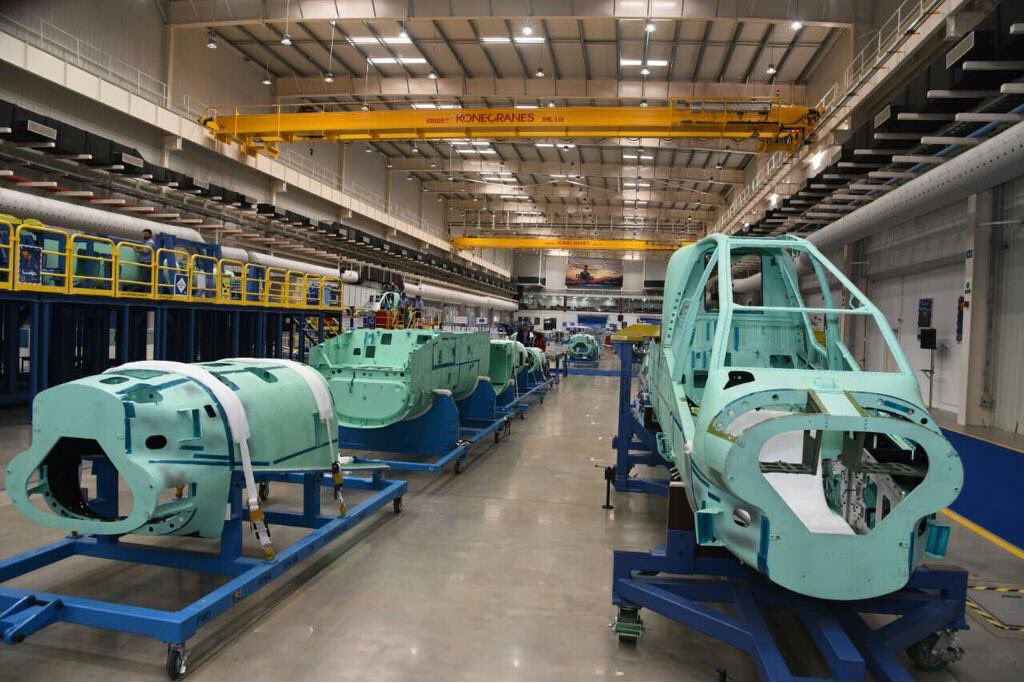
TATA-BOEING AH-64 APACHE FACILITY IN HYDERABAD
With a year to go for India’s next national election, there’s an expected pause in most defence-related procurement and industrial activity. From the government’s side, that is. Not that the last few years have been exactly hectic for the country’s vaunted Make-in-India program in the difficult and politically sensitive defence sector. On the contrary, things have been less than tepid, with even a junior minister reported to have put his finger right in it with a damning report that minces no words on just how abysmal has been India’s ability to persuade foreign firms and governments to, well, make in India. Adding the finality of bare figures to the gloom, it was revealed this week that India’s defence sector had managed to draw a measly $0.18 million in investments since April 2017.
Amidst the evident gloom, Boeing, one of India’s biggest suppliers of aerospace equipment in the last decade, is about to hold its most ambitious suppliers conference in the country — one aimed specifically at ramping up the amount of industrial work it can get done in India. Early next week in Delhi, over 48 hours, Boeing will bring together some of its top foreign suppliers, armed with potential sourcing opportunities worth billions, with Indian firms looking to join one of the world’s largest aerospace supply bases.
Boeing currently works with over 160 Indian suppliers that provide advanced, complex components and subassemblies for the company’s commercial and military aircraft. While the suppliers conference will offer Indian firms opportunities for supply and partnership on aerospace projects across the board from aircraft to helicopters to space equipment, Livefist learns that there could be special and specific opportunities on the F/A-18 Super Hornet program, given it is currently Boeing’s single biggest offering to the Indian military.
India’s state-owned HAL supplies locally manufactured gun bay doors to the F/A-18 program, though Boeing is looking to plug India more meaningfully into the Super Hornet’s global supply base in the years ahead.
In Hyderabad earlier this week, Leanne Caret, president and chief executive officer, Boeing Defence, Space and Security said Boeing had quadrupled sourcing from India in the last 24 months to over $1 billion. She was speaking shortly after the inauguration of Boeing’s flagship industrial partnership in the country at present — its joint venture with India’s Tata Group, that currently produces a variety of equipment, including AH-64 Apache fuselages and the CH-47 Chinook’s tailcone and crown. Among other things, Tata-owned enterprises also supply composite floor beams for Boeing’s 787-9 Dreamliner aircraft.
“We have taken a dual approach of making equity and non-equity investments in support of Make in India,” Pratyush Kumar, president, Boeing India tells Livefist. “We partnered with Tata Advanced Systems to establish a joint venture that would produce aerospace aerostructures in India, for the world. But it’s important to note that non-equity partnerships also can help grow the defense industrial base. Boeing has invested millions of dollars in supplier development, training, tooling and quality systems at Indian suppliers without taking an equity stake, and we continue to increase our partnerships with public and private companies.”
With its suppliers conference next week — and with ongoing discussions with partners that include HAL — Boeing is looking to significantly boost its sourcing and local manufacture activity in India. Suppliers conferences usually begin with a day of presentations where Boeing’s partners and suppliers provide a detailed overview of opportunities for local manufacture and supply from India, followed by a day of networking between Indian firms and Boeing suppliers, where agreements, memoranda of understanding, even possibly trial contracts are actually signed.
Kumar says, “We are focused on our Indian partnerships to fully harness productivity opportunity in India to deliver more-for-less (more capability & fuel efficiency for less cost) to our customers worldwide. In that sense, ‘Make in India’ has become a win-win mantra for us – while it creates jobs and industrial capacity in India it also helps us stay globally competitive to keep growing and create jobs.”
Boeing has had singular success in the Indian defence market in the last decade, closing major deals for P-8I aircraft for the Indian Navy and C-17 Globemaster III strategic transporters, AH-64E Apache and CH-47F Chinook helicopters for the Indian Air Force. It’s biggest current activity in the sector is in response to India’s quest for fighter aircraft for the Indian Air Force and Indian Navy, pitching its F/A-18F Super Hornet. The project, as dictated by the Indian government’s make-in-India program, envisages an expansive industrial package.
“Boeing is also committed to expanding its partnership by producing Super Hornets in India, further developing the country’s aerospace ecosystem,” Kumar says. “Boeing will work closely with Indian industry to ensure they have the very latest technologies, applying lessons learned from the current Super Hornet production line.”
Amidst a larger uncertainty over the effectiveness of the Indian MoD’s strategic partnership policy and persistently problematic offsets regime that has bedeviled forward movement on multiple fronts, Boeing continues to lay the foundation for ground-level skilling and research work. Last September it inaugurated the second phase of its engineering facility in Bengaluru that hires engineers for research in state-of-the-art technology areas like data analytics, internet-of-things, avionics, aerospace design, manufacturing and testing. This week, Boeing unveiled the last lap of its HorizonX India Innovation Challenge, which aims to ‘discover and accelerate potentially transformative aerospace innovation from India’. Thirteen start-ups have made it to the last round.
“Boeing is excited about India’s potential for step-change innovation which could define the future of aerospace across the globe,” says Kumar. “We are building the future of aerospace, incubated and started right here in India by partnering with innovative companies.”
from Livefist http://ift.tt/2FtakKh
via Live Defense

No comments: